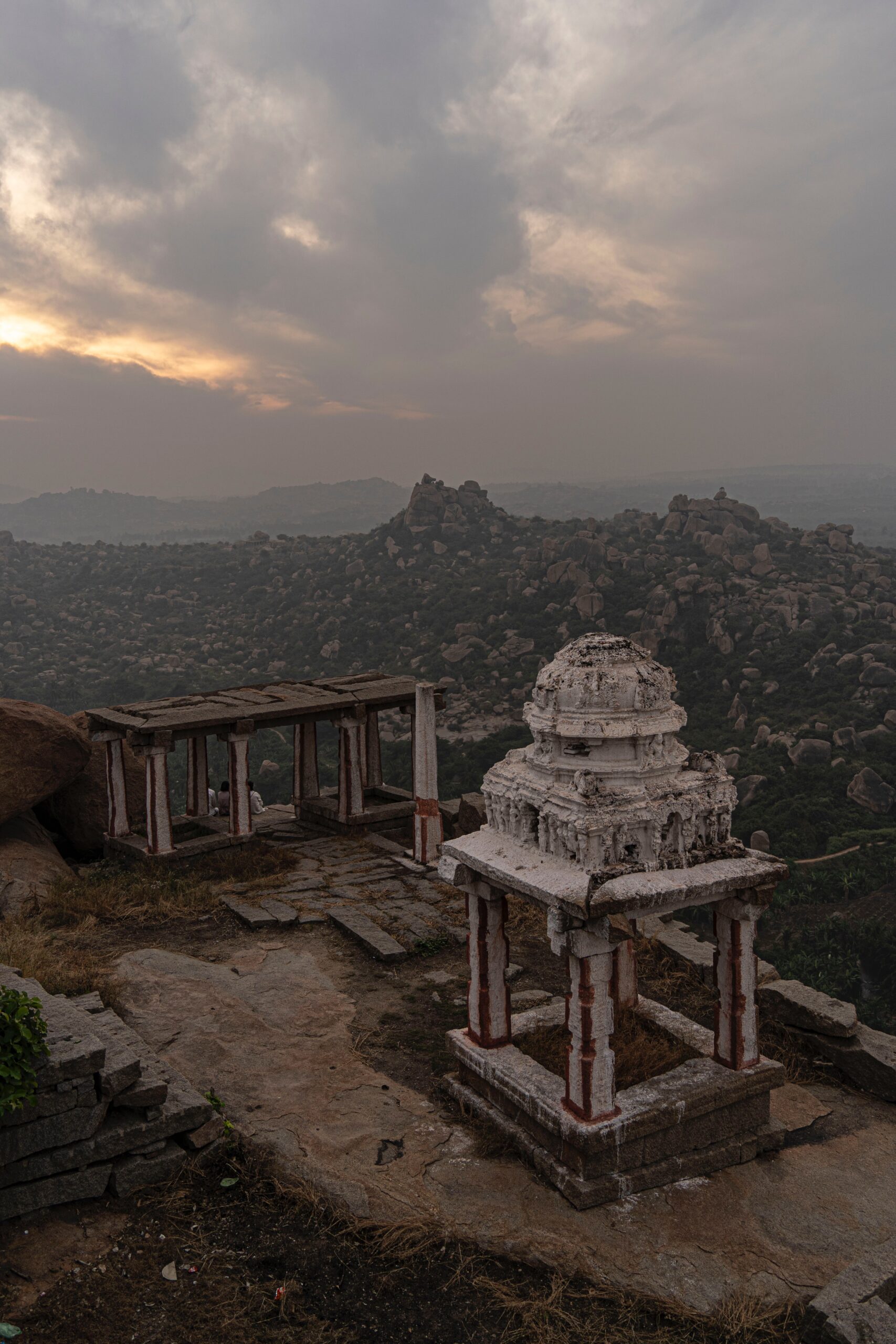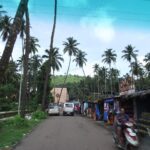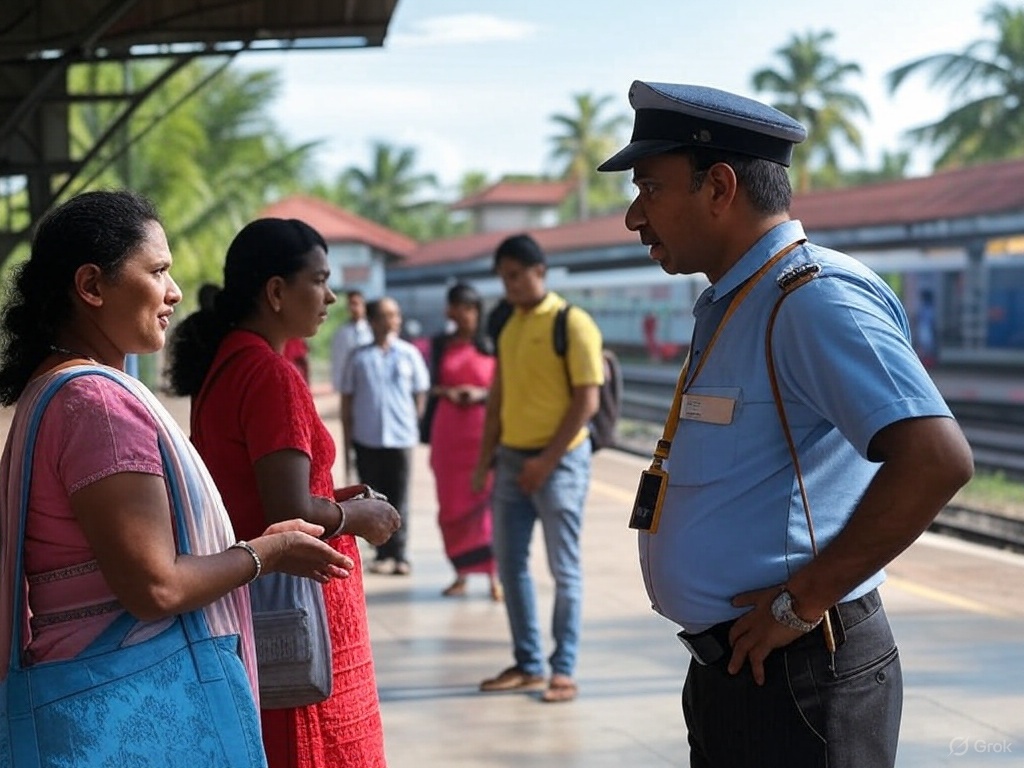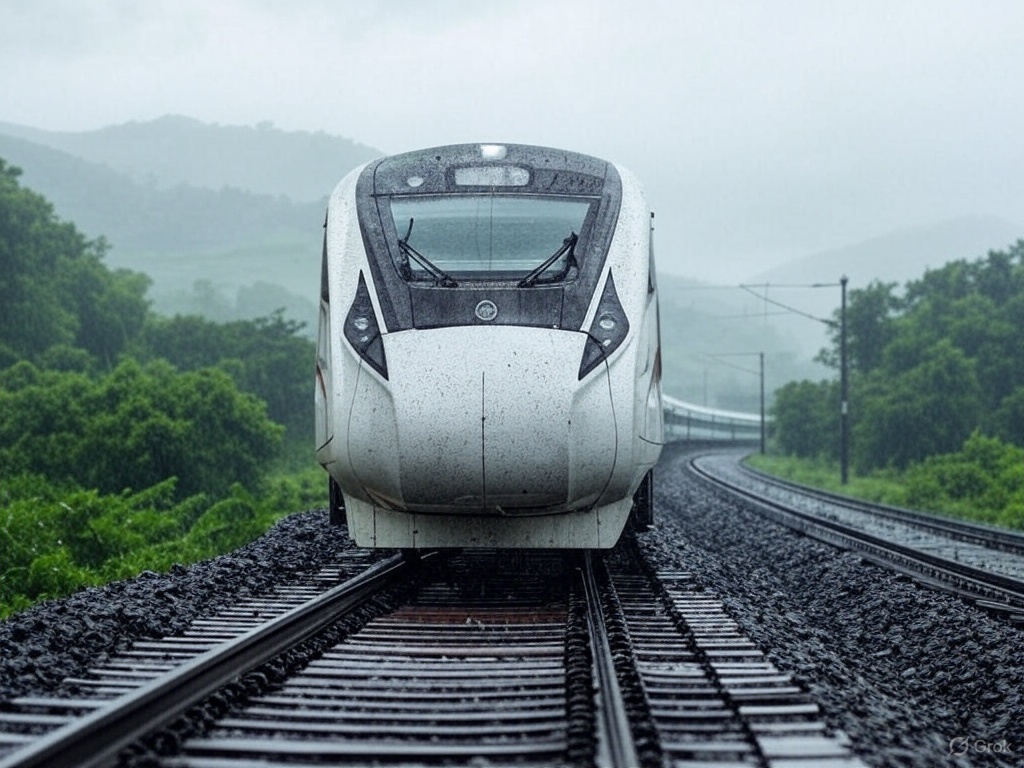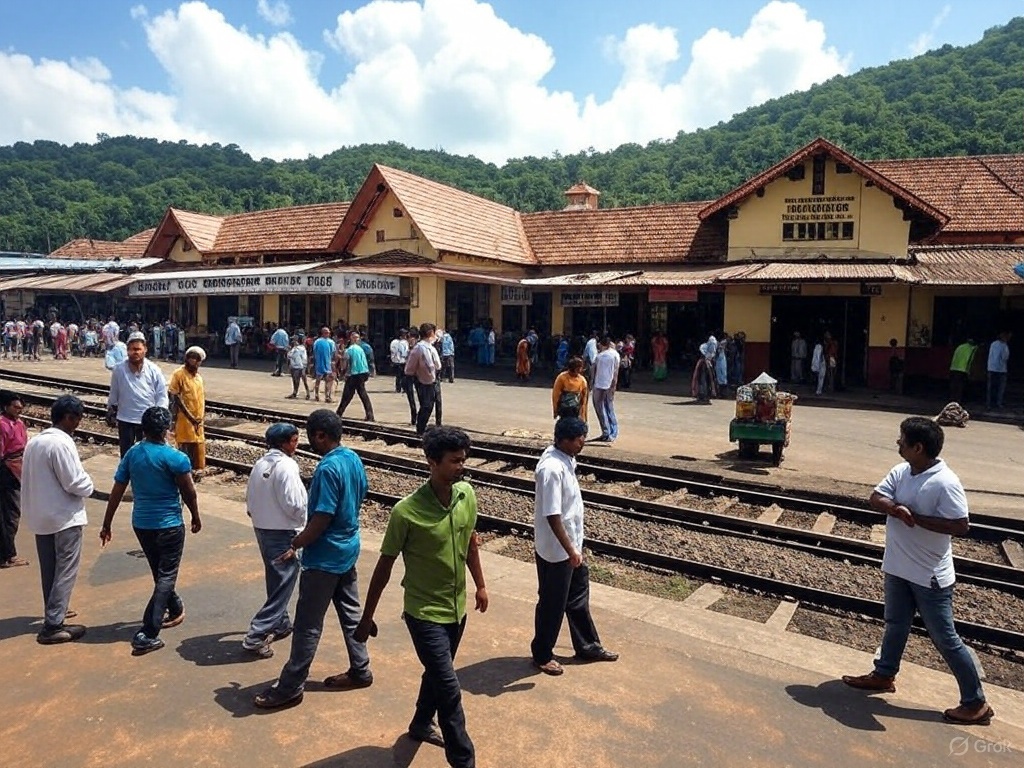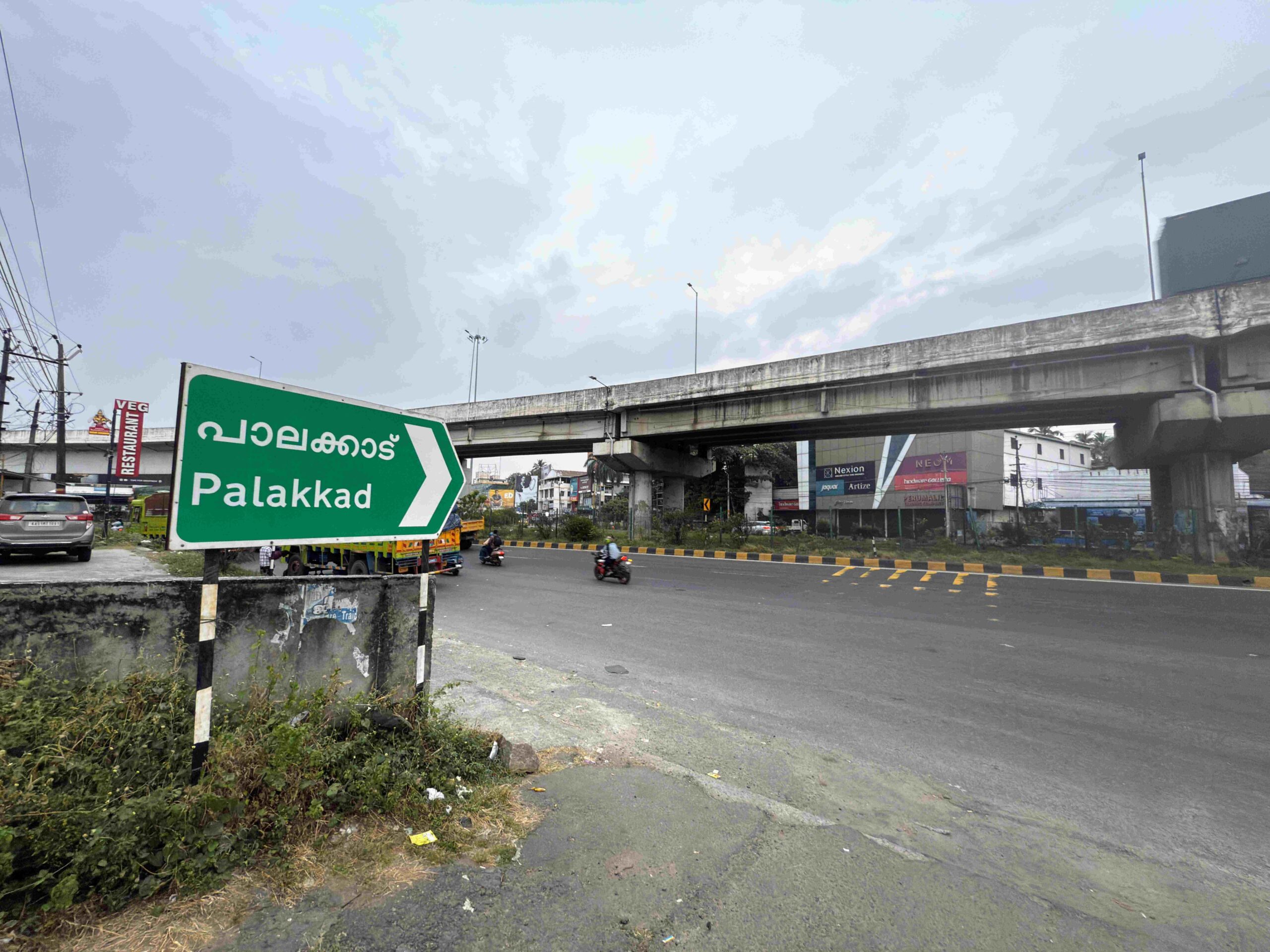Embark on a mesmerizing journey from the bustling city of Bangalore to the historic ruins of Hampi. This road trip promises a blend of urban charm, natural beauty, and ancient grandeur.
—
Day 1: Departure from Bangalore
Morning:
– 6:00 AM: Depart from Bangalore. Ensure your vehicle is in good condition, and you have all essentials like water, snacks, and a first-aid kit.
– 8:30 AM: Breakfast stop at Chitradurga. Try local delicacies like Dosa and Vada at a highway restaurant.
Afternoon:
– 12:30 PM: Reach Hospet. Have lunch and take a short break.
– 2:00 PM: Proceed to Hampi.
Evening:
– 4:00 PM: Arrive in Hampi. Check into your pre-booked hotel.
– 5:30 PM: Visit the Hampi Bazaar for some local shopping and exploration.
– 7:30 PM: Return to the hotel. Dinner and rest.
Day 2: Exploring Hampi
Morning:
– 7:00 AM: Breakfast at the hotel.
– 8:00 AM: Start your day with a visit to the Virupaksha Temple, an iconic structure of Hampi.
– 10:00 AM: Explore the Hemakuta Hill Temples.
Afternoon:
– 12:30 PM: Lunch at a local eatery. Try the regional cuisine.
– 2:00 PM: Visit the Royal Enclosure to witness the Lotus Mahal, Elephant Stables, and the Queen’s Bath.
– 4:00 PM: Explore the Vittala Temple and its famous stone chariot.
Evening:
– 6:00 PM: Enjoy a serene sunset at the Matanga Hill.
– 8:00 PM: Dinner at a local restaurant. Try the Thali for a variety of flavors.
Day 3: Delving Deeper into Hampi’s History
Morning:
– 7:00 AM: Breakfast at the hotel.
– 8:00 AM: Head to the Riverside Ruins, which includes the Yeduru Basavanna and the Kodandarama Temple.
– 10:00 AM: Explore the Underground Shiva Temple.
Afternoon:
– 12:00 PM: Lunch at Mango Tree, a popular restaurant in Hampi.
– 1:30 PM: Visit the Hazara Rama Temple and the Archaeological Museum.
– 3:30 PM: Explore the Monkey Temple (Hanuman Temple) and enjoy panoramic views of Hampi.
Evening:
– 5:30 PM: Leisure time. You can opt for a coracle ride in the Tungabhadra River.
– 7:30 PM: Return to the hotel. Dinner and rest.
Day 4: Return to Bangalore
Morning:
– 7:00 AM: Early breakfast and check-out from the hotel.
– 8:00 AM: Depart from Hampi.
Afternoon:
– 12:30 PM: Lunch stop at Hospet.
– 2:00 PM: Continue the journey towards Bangalore.
Evening:
– 6:00 PM: Reach Bangalore. The road trip concludes with cherished memories of Hampi’s historic charm.
Tips for the Trip:
- Ensure your vehicle is serviced before the trip.
- Carry cash as not all places in Hampi might have card payment facilities.
- Wear comfortable shoes as there’s a lot of walking involved in Hampi.
- Stay hydrated and wear sunscreen.
- Respect the local customs and traditions.
Hampi: The Historical Jewel of India
Location:
Hampi is located in the southern state of Karnataka, India. It lies within the ruins of the ancient city of Vijayanagara, near the banks of the Tungabhadra River.
Historical Significance:
1. Capital of the Vijayanagara Empire:
Hampi was the capital city of the powerful Vijayanagara Empire, which ruled South India from the 14th to the 16th century. The empire was one of the most prosperous and influential kingdoms in India’s history.
Architectural Marvel:
The ruins of Hampi are renowned for their intricate architecture, which blends both Dravidian and Indo-Islamic styles. The city’s structures, built using massive boulders, include temples, palaces, market streets, aquatic structures, and fortifications.
Cultural Hub:
In its prime, Hampi was not only a political and military capital but also a vibrant cultural hub. It attracted traders, scholars, and artists from various parts of the world, making it a melting pot of diverse cultures and traditions.
Religious Significance:
Hampi is home to several historically important temples. The Virupaksha Temple, dedicated to Lord Shiva, is among the city’s most iconic structures and continues to be a significant pilgrimage site.
UNESCO World Heritage Site:
Recognizing its historical, architectural, and cultural significance, the ruins of Hampi were designated a UNESCO World Heritage Site in 1986.
Decline and Ruin:
Despite its grandeur, Hampi faced a tragic downfall. In 1565, the city was besieged and subsequently plundered by a coalition of Muslim sultanates in the Battle of Talikota. The once-magnificent city was reduced to ruins, which today stand as a testament to its former glory.
Literary References:
The history and grandeur of Hampi have been documented in various ancient texts and inscriptions. The empire and its capital have been mentioned in accounts by foreign travelers, including the Portuguese traveler Domingo Paes and the Persian ambassador Abdur Razzak.
Hampi stands as a poignant reminder of India’s rich historical and cultural heritage. The ruins, with their silent stories of grandeur, tragedy, and resilience, continue to captivate historians, archaeologists, and travelers from around the world.
Hey there! 😊 We run a small YouTube channel for Roads & Rails, and we'd love your support! Now the channel features daily Rail fanning videos.. Please Hit that subscribe button to help us stay inspired and create even more exciting content. Got questions, feedback, or ideas for collaboration? We’d love to hear from you! Drop us a message at mail@roadsandrails.org. Thanks for being part of our journey!



